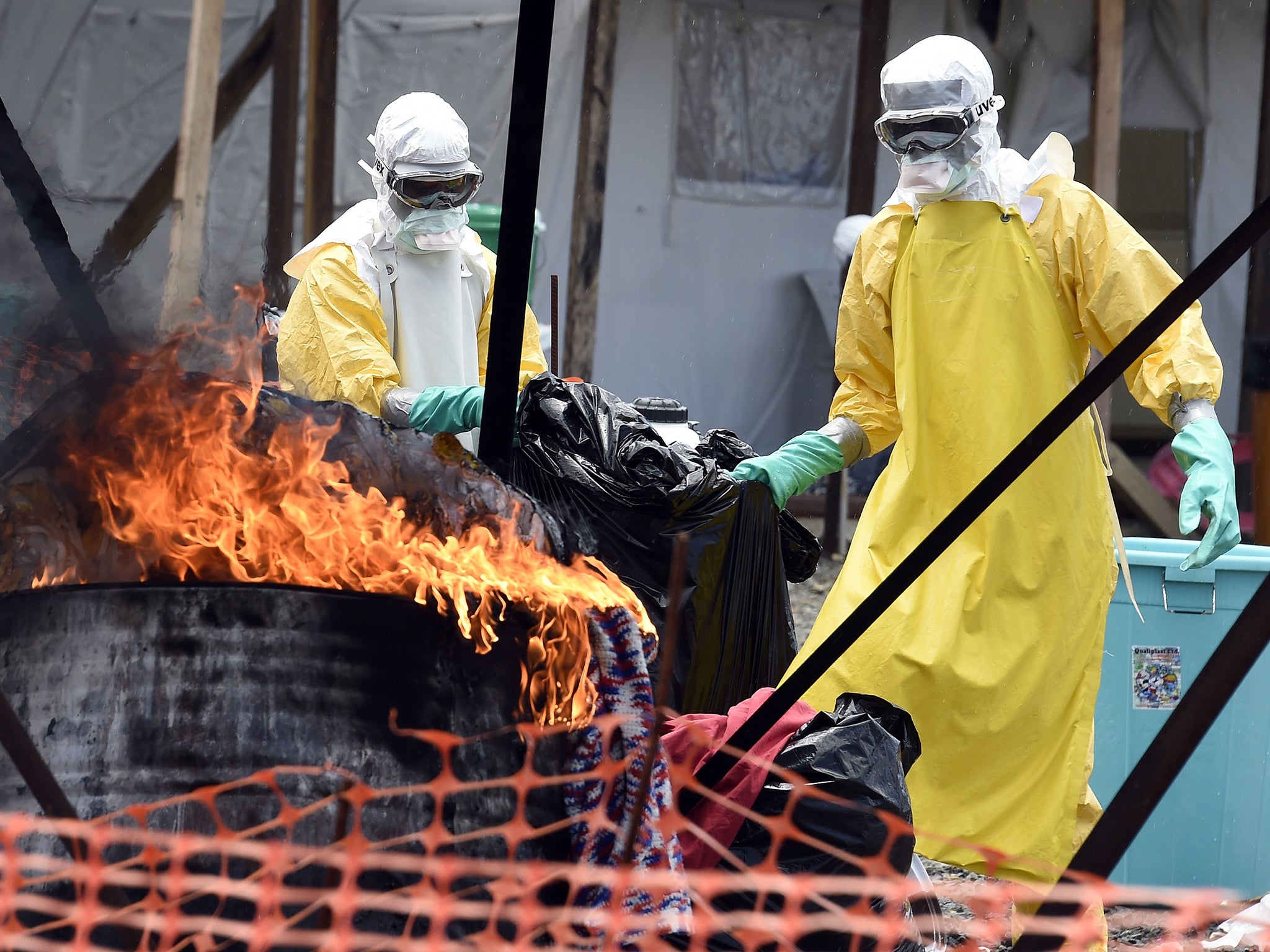The reality of Ebola: Buckets of chlorine in the streets, and no one shakes hands any more
Here in Sierra Leone, there is horror and sadness, but still there is hope

Here in Kenema in Sierra Leone, Ebola has settled in. You’ll find buckets of chlorine outside most of the restaurants for diners to wash their hands before entering. Our nostrils have now adjusted to the smell; chlorine has become the ‘perfume’ that we all wear.
You’ll find Ebola posters plastered on all available buildings, the chatter on the radio is always about Ebola and the conversation on the street is about nothing else. Our customary handshake greeting and the clasping hug of a loved one or a dear friend has been replaced by elbow to elbow and foot to foot tapping.
Kenema district in the Eastern Province - some 100 miles from Sierra Leone’s capital Freetown - has been quarantined for the past five months. To enter the town you need to pass through military checkpoints. It’s now not possible for Kenema people to travel to Freetown; we are confined - frightened and unsure when this nightmare is going to end.
During the three day government lockdown last month, Kenema became a ghost town, the only people to walk along the streets were the health officials, looking for the sick, dying, and the dead. There was no chance for us to attend church services during this period so we prayed inside our homes with our families. We heard news that some of our Muslim neighbours attempted to go to the mosque to attend Friday prayers, but they were advised to turn back.
Our trust in each other has been dented, yet we can only combat Ebola by gaining trust, not eroding it. That is why the support we are getting from the Caritas network through CAFOD and Trocaire – in mobilising the public education awareness programme - is at the heart of building trust within our fearful communities. Parish priests, Catechists and church volunteers have spread out across the diocese bringing messages of prevention, but also messages of love, care and hope, as there are many people in remote rural areas who feel forgotten.
This is a new disease for us and every day that patients get treated, and the public get educated to understand the Ebola virus, we learn how to do things a little better for next time.
The work of aid agencies like Médecins Sans Frontières and World Health Organisation have been crucial in containing the virus, and we welcome the offers of British nurses being sent and the British Army building a specialist hospital. But, we must never forget our own health workers working long hours, sacrificing contact with their families, having to watch their colleagues die. They do not step away from the bedsides of the sick and the dying.
I am often asked what the consequences of the Ebola crisis will be for Sierra Leone, and I compare it to our long bloody civil war in the 1990s. Ebola leaves in its wake, orphans – who have now lost their source of food, education, love and care; it has taken our farmers away from the fields - it has shut down our roads and market places – destroying future economic prosperity.
There is a lot of talk about “worst-case scenario”. News reports talk of “1.4 million cases of infection across Sierra Leone and Liberia by January”. But we cannot allow ourselves to be defeated by this invisible enemy. If we greet the sunrise tomorrow, we give thanks for another day of life.
There is horror, there is sadness and there is tragedy, but there is also hope. Hope is what we all cling to. There are many stories of singing coming from hospital wards, of patients and staff with the spirit to keep fighting on. And we fight on in the belief that the world has finally woken up to Ebola and got serious about it.
Patrick Jamiru is director of Caritas Kenema
Join our commenting forum
Join thought-provoking conversations, follow other Independent readers and see their replies
Comments